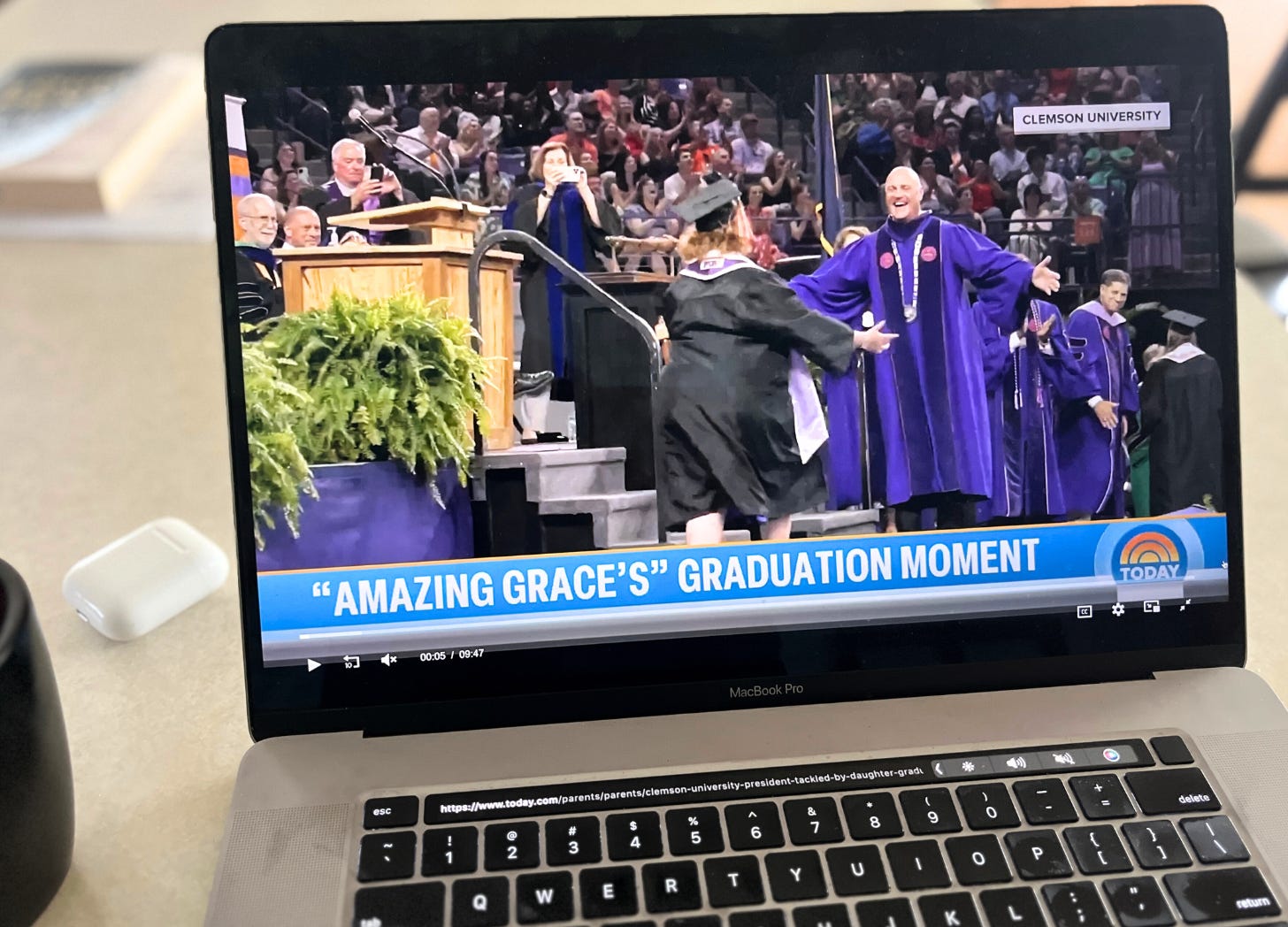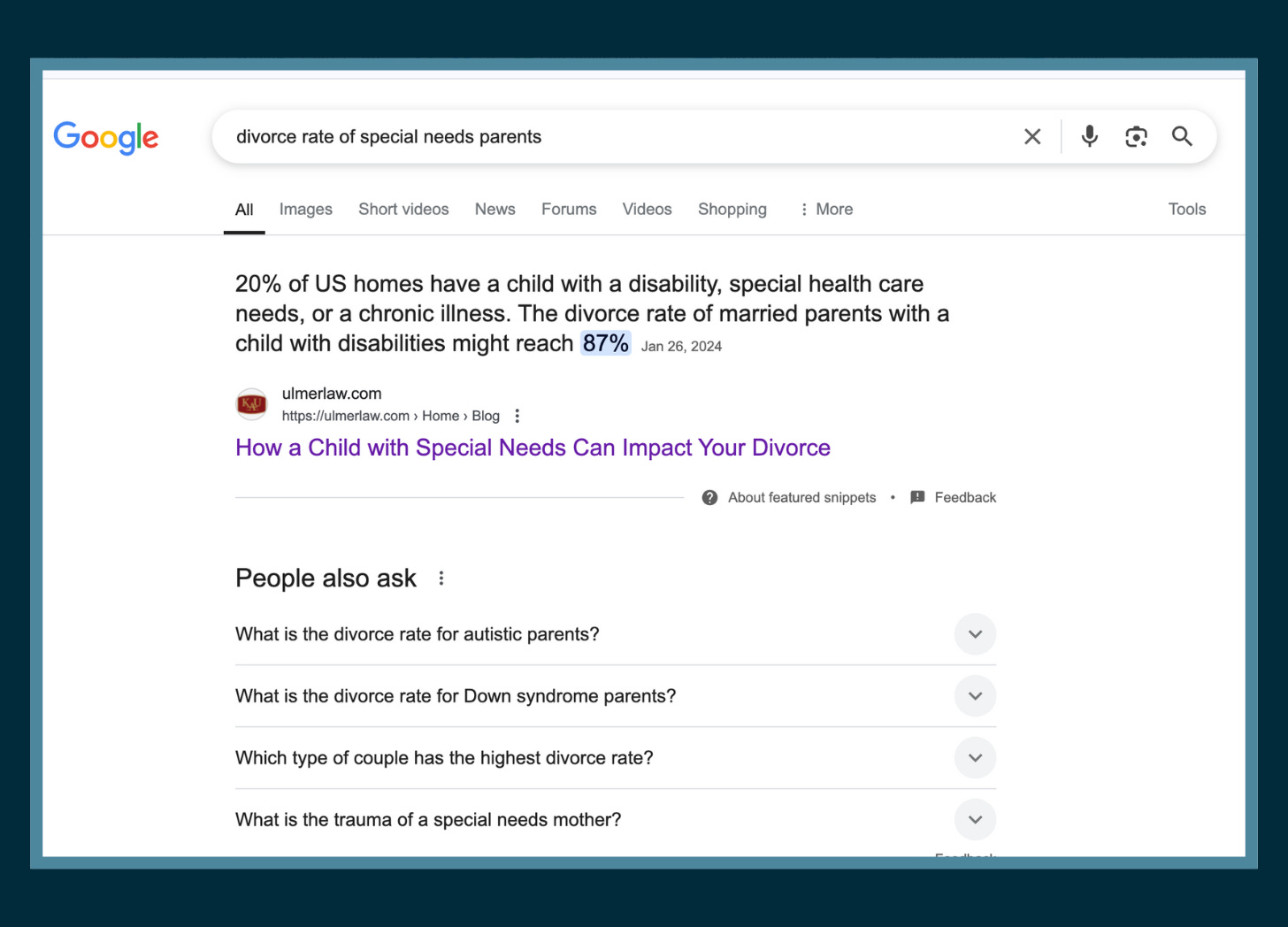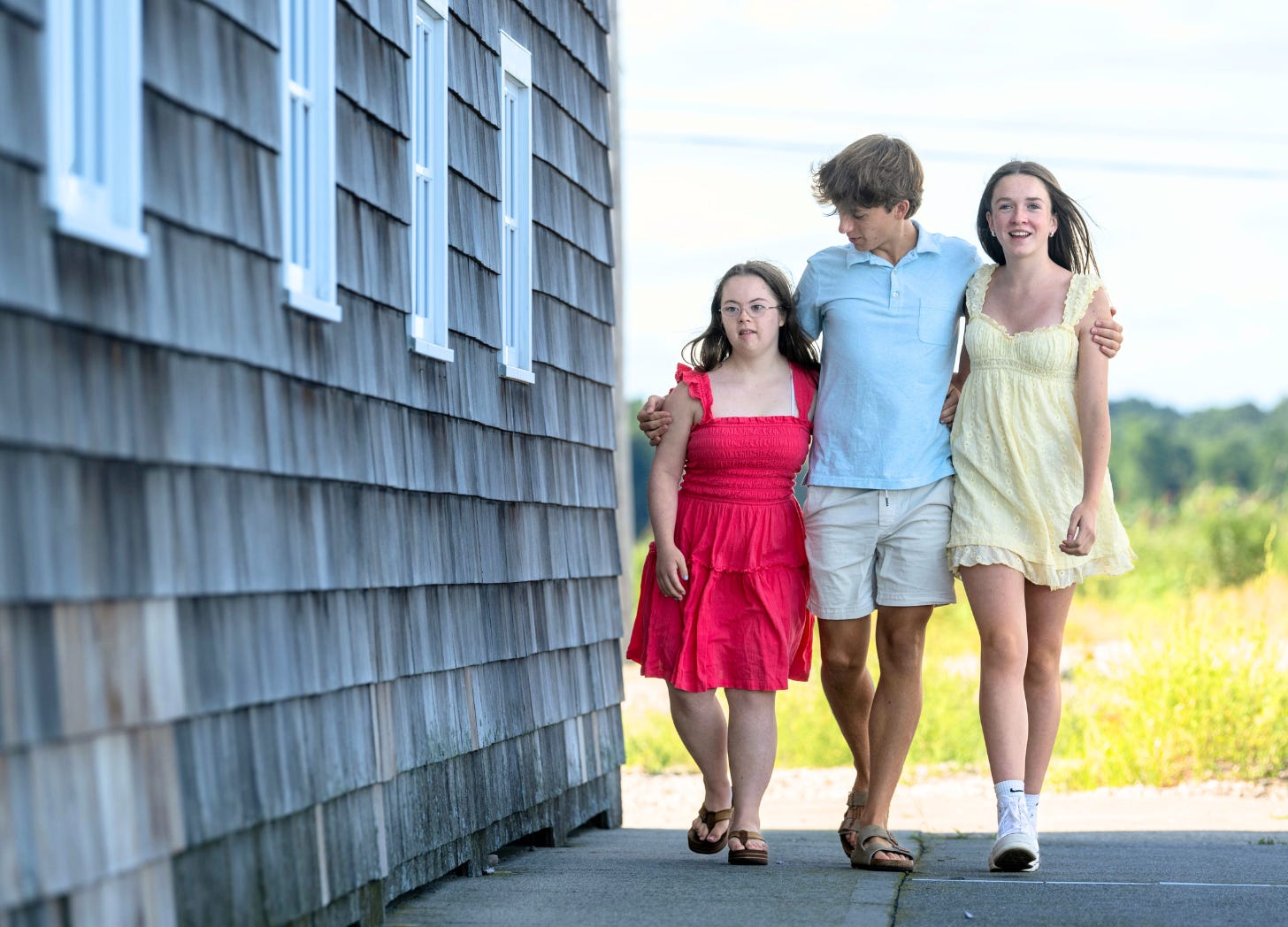I watched the viral video of Grace Clements embracing her dad, the President of Clemson University. They tumble onto the stage together and get up for a more subdued, though still exuberant, hug, on the day marking Grace’s graduation from the ClemsonLIFE program. (Penny’s dream is to attend the ClemsonLIFE program, just like Grace.)

I also watched Grace and her parents on the Today Show, and I heard Beth Clements say that “80% of parents of kids with special needs get a divorce.”
When I Googled “divorce rate of special needs parents,” the top result reads:
“20% of US homes have a child with a disability, special health care needs, or a chronic illness. The divorce rate of married parents with a child with disabilities might reach 87%”

Marriage and parenting kids with disabilities can be challenging. That’s true. And yet a deeper dive into the literature reveals a far more complex, and far more positive, story. (If you’re reading this and currently facing a difficult challenge, please know that you’re not alone. This essay isn’t about offering specific solutions to your situation, but I do want to gently encourage you to reach out for support and ask for help where you are.)
The 80% number seems to emerge from a 2023 article in Psychology Today that links to a Special Needs Law essay that references a documentary film about autism. In other words, the source of this information is quite unclear, and it originates only as a comment about families with kids with autism.
More Hopeful Data
A 2015 study by the National Institutes of Health reached very different conclusions about the stability of marriages in families affected by disability, including autism. This study tracked nearly 200 families (compared to a control group of 7,200 families with typically-developing kids) over 50 years. Here’s what they report:
- A 2004 meta-analysis of 13 different studies about divorce saw only a slight difference in marriage survival between families with kids with disabilities and families with typically developing kids
- A 2007 study found a significantly LOWER rate of divorce among parents of children with Down syndrome than the general population
- A 2010 study found that the rate of divorce of parents with autistic children is comparable to the general population, but there is a higher rate of divorce during the adolescent years
- Families with more children who include a child with a disability seem to have a lower rate of divorce than smaller families who include a disabled child
The researchers write:
“In conclusion, we found that divorce rates were not elevated, on average, in families with a child with developmental disabilities.”
The Importance of the Stories We Tell
I can’t say for sure why the 80% statistic gets thrown about so often. Maybe it’s simply because of what comes up on a Google search. Maybe it’s because 80% feels so dramatic, and we tend to focus on, remember, and pass along dramatic data. Maybe it’s because well-meaning people want to send out a warning so that parents don’t forget to take care of their own needs, including the need to stay connected to and supportive of each other. Maybe it’s because we as a culture tell a story of disability as a tragedy and a burden, and this statistic supports that story.
I’ve said it before, and you’ll hear it from me again: we need to tell a new—and true and accurate—story about disability. We need to reimagine disability. And those of us in families affected by disability need to tell stories like that of Grace Clements and her family, stories of hope and resilience and limitations and possibilities and hardship and growth.
An Imagination for a Good Life

For nearly two decades, I’ve also been telling the story of our family in public, not in order to hold us up as exemplars, but in order to help shape an imagination for a good life for families affected by disability. Yes, there are hardships associated with the particularities of our family life, and I’m unlikely to share most of those here out of respect for our teenagers’ privacy. But there is also a lot of joy.
Recently, I was taking a walk with William, our 16-year-old son and Penny’s younger brother. I asked him if he ever felt like he needed support in light of having a sister with Down syndrome. “No, Mom,” he said. “If anything, I see it as a positive aspect of my life.”
I asked Marilee, our 14-year-old, the same question. She said, “I don’t really feel like it’s affected me that Penny has Down syndrome. I mean, maybe it makes me more empathetic to people who are excluded.”
Our family is just one example of the reality of marriage and parenting with a disabled child. We are among those who experience gratitude, strength, and growth here. And we are not alone.
If you are in a marriage with a child with disabilities, please know that your marriage can grow and thrive. Your kids can grow up in mutually beneficial relationships of love with one another. Your family can be a blessing to your community.
Let’s stay in touch. Subscribe to my newsletter to receive weekly reflections that challenge assumptions about the good life, proclaim the inherent belovedness of every human being, and envision a world of belonging where everyone matters. Follow me on Facebook, Instagram, and YouTube and subscribe to my Reimagining the Good Life podcast for conversations with guests centered around disability, faith, and culture.



